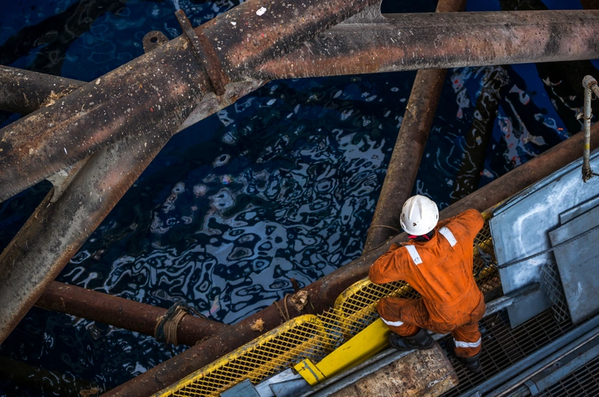
Oil companies have asked security services to tighten surveillance as violent anti-police brutality protests and the expected sacking of hundreds of workers worsen desperation in the region, industry sources told Reuters.
Already unemployment is above 40% in Nigeria's energy regions and observers say further job losses could aggravate problems of pipeline tapping, illegal oil refining and pirate attacks.
Three sources close to the companies, speaking on condition of anonymity, told Reuters the majors had asked for tougher surveillance, and non-government organisations said crime was a risk.
"It's going to increase the desperation in the region, which leads to criminality," said Ken Henshaw, executive director at Port Harcourt-based NGO We The People.
Oil major Chevron plans to cut 25% of its Nigeria workforce, which IndustriALL Global Union said included 1,000 jobs.
Already, the oil companies do not provide enough jobs to satisfy employment needs in the region, which has few other industries.
STRIKE THREAT
Union PENGASSAN has threatened strikes over 65 job cuts at oil services firm Baker Hughes.
At the end of 2017, Chevron had 5,377 employees and contractors in Nigeria. A spokesman did not provide an updated figure or say if that had changed substantially.
The Ijaw Youth Council, which represents local people, said it expected thousands more cuts as other oil majors retrench.
Royal Dutch Shell and ExxonMobil have announced global job cuts, but said they do not know how many would come in Nigeria. Eni did not comment. Total has not announced cuts, and said it had not reduced wages in Nigeria.
Oil union Pengassan said roughly 200,000 Nigerians work in oil and gas. The unions are fighting all of the cuts.
Nigeria's unemployment reached 30% in the second quarter, and oil-producing Akwa Ibom and Rivers states had the second and third highest total nationwide, at 45.2% and 43.7%, respectively. Across the four main oil-producing states, some 4.8 million were unemployed in the second quarter.
Protests against police brutality also exploded into riots and looting last month, and in parts of the Delta, police stopped leaving their barracks because of the anger, Henshaw and the three other sources said.
Groups of armed local residents patrolled instead. A police spokesman did not respond to a request for comment.
Oil theft cost Africa's largest oil exporter $1.35 billion in the first half of 2019, while pirate kidnappings in the Gulf of Guinea account for 95% of the global total.
Eurasia Group, Henshaw and Patterson Ogun, founding director of the Ijaw Council for Human Rights, said locals were unlikely to blow up pipelines. But Henshaw and Ogun said some would tap them to sell oil or make money refining it.
"The communities are just looking to take care of themselves," Ogun said.
(Additional reporting by Camillus Eboh in Abuja and Benjamin Mallet in Paris, editing by Dmitry Zhdannikov and Barbara Lewis)